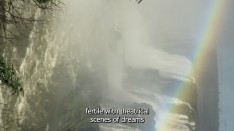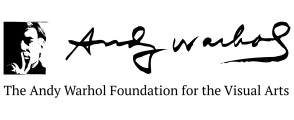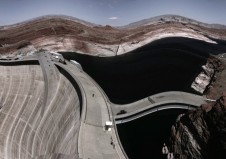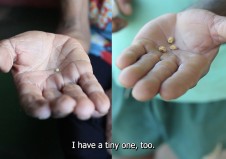Experimentations 7: Carolina Caycedo: The Lives of Rivers

A Gente Rio (We River) (2016) By Carolina Caycedo, Iimage courtesy of the artist.
Los Angeles Filmforum and the Vincent Price Art Museum present
Experimentations: Imag(in)ing Knowledge in Film, Program 7
Carolina Caycedo: The Lives of Rivers
Sunday November 3, 2024, 7:00pm
At 2220 Arts + Archives, 2220 Beverly Blvd. Los Angeles CA 90057
Tickets are free; RSVP requested
https://link.dice.fm/o79ece7215be
Carolina Caycedo in person for conversation with Lisa Blackmore
Filmforum hosts Carolina Caycedo in conjunction with We Place Life at the Center / Situamos la vida en el centro, the an art and environmental justice exhibition at the Vincent Price Art Museum. This film program showcases Caycedo’s film and video work, emphasizing the artist’s commitment to promoting the teachings of reciprocity with nature and personifying rivers, watersheds, plants, and other non-human beings as political agents.
In her video work, Caycedo utilizes varying modes – documentary, dance, visual effects, observational, poetic, meditative -- to explore the milieu, the losses, and the possible re-births, of waterways in the Americas. The films contrast the lifestyles of indigenous and non-indigenous peoples in their understanding of the uses of and debts owed to the rivers that give us life. These beautiful films express indigenous beliefs while reckoning with modernity, using the visual technology of today in common cause with activists and stakeholders seeking to restore our rivers and by extension, ourselves.
Filmforum hosts Carolina Caycedo in conjunction with We Place Life at the Center / Situamos la vida en el centro,the an art and environmental justice exhibition at the Vincent Price Art Museum. focusing on art and environmental justice in the Americas.her work regarding “water and land stewardship, food sovereignty, and fair and just energy transition.”
This film program showcases Caycedo’s film and video work, emphasizing the artist’s commitment to promoting the teachings of reciprocity with nature and personifying rivers, watersheds, plants, and other non-human beings as political agents.
Curated by Adam Hyman
Carolina Caycedo is a multidisciplinary artist based in Los Angeles. Her practice and research focus on the future of our shared resources, ecosocial transition, and bio-cultural diversity. Her art installations, performances, videos, sculptures, and artist’s books examine social and environmental issues and contribute to the construction of environmental and historical memory. She has exhibited internationally and has developed publicly engaged projects in Los Angeles, Mexico City, Bogotá, San Juan, New York, London, and Paris, among others. Caycedo received a 2023 Soros Arts Fellowship and was the 2023-2024 Artist in Residence at the Getty Research Institute.
Lisa Blackmore is Senior Lecturer in Art History and Interdisciplinary Studies at the University of Essex. She is the founder-director of entre—ríos, a confluence of arts-led projects exploring continuities between bodies of water, human bodies, and territories, and recognizing rivers as active subjects that produce aesthetic forms, transform landscapes and shape memory. Lisa is currently a Visiting Fellow at UC Berkeley, where she is writing a book on water, art and infrastructure in Latin America. Her recent publications include Hydrcommons Cultures: Art, Pedagogy and Care Practices across the Americas (2024, edited with Alejandro Ponce de León).
This program is in conjunction with the Vincent Price Art Museum’s exhibition.
Special Thanks to Joseph Valencia, Gloria Ortega, and Nadia Estrada of VPAM, and Sean Grattan, Studio Manager for Carolina Caycedo.
We Place Life at the Center / Situamos la vida en el centro
Sept 28, 2024 – March 2, 2025
https://vincentpriceartmuseum.org/exhibitions-we-place-life.html
We Place Life at the Center / Situamos la vida en el centro is an exhibition, publication, and educational platform that directs dialogue and points of exchange among art, science, and environmental justice in the Americas. The project stems from the work of Los Angeles-based Colombian artist Carolina Caycedo, whose art and research engage with the interrelated issues of water and land stewardship, food sovereignty, and fair and just energy transition.
Building upon four years of research and fieldwork in frontline communities across the United States, Latin America and the Caribbean, the project promotes alternative solutions to the global climate crisis rooted in ecofeminist and environmental justice perspectives, and fosters networks of learning, solidarity, and action among diverse organizations and social movements throughout the Western Hemisphere.
The exhibition assembles new works by Caycedo produced since 2018, several on view for the first time, alongside artworks from artists and environmental movements within Caycedo’s network. More than the presentation of a single artist’s work, the exhibition provides a dynamic space for knowledge sharing across communities and geographies, inviting members of the public to reflect on the interconnectivity of the natural world and our shared responsibility in its stewardship. In doing so, we recognize the power of individual and collective efforts to confront the global extractive energy system and its negative effects on our planet.
Experimentations: Imag(In)ing Knowledge in Film is Filmforum’s expansive film series and upcoming publication that investigates the ways that experimental and scientific films produce and question the visualization of the world. Combining artist films utilizing scientific imagery, science and natural history films, and films of indigenous and traditional knowledge, the series examines how science, nature, and technology films shape our understanding of humans, nature, gender, knowledge, and progress. The multi-venue public screening series presents analog and digital time-based media incorporating diverse scientific and experimental film traditions from across the globe. The series will include eighteen screenings between September 2024 and February 2025, with films and digital works from 1874 to today from around the world, multiple guests, panels and wonderful collaborations that will reveal the possibilities and circumstances of cinema in this realm.
Experimentations: Imag(in)ing Knowledge in Film is among more than 70 exhibitions and programs presented as part of PST ART. Returning in September 2024 with its latest edition, PST ART: Art & Science Collide, this landmark regional event explores the intersections of art and science, both past and present. PST ART is presented by Getty. For more information about PST ART: Art & Science Collide, please visit: pst.art.
Major support for Experimentations: Imag(in)ing Knowledge in Film is provided by the Getty Foundation and The Andy Warhol Foundation for the Visual Arts. Additional Support from the Los Angeles County Board of Supervisors through the Los Angeles County Department of Arts & Culture, and the Department of Cultural Affairs, City of Los Angeles. 


Dejar de ser amenaza para convertirnos en promesa / To Stop Being a Threat and To Become a Promise
Dejar de ser amenaza para convertirnos en promesa / To Stop Being a Threat and To Become a Promise
2017, 2 channel HD video, color, sound. 8:03
Sound design: Daniel Correa
Weaving footage from diverse hydrographies such as the Colorado, the Yaqui, the Xingu, the Spree and the Magdalena Rivers, the two channels contrast the indigenous and rural 'campesino' lifestyle, with the extractivist approach to water and land, by juxtaposing encountered perspectives and understandings of what a territory is, and how it may be inhabited. Along the video, the indigenous perspective casts visual spells on the extractive one, making it wobble, shake, unfold, and eventually transforming it into a spiritual vision.

A Gente Rio (We River)
A Gente Rio (We River)
2016, digital, color, sound, 30 min.
A Gente Rio puts in relation the Itaipu Dam, the second largest hydroelectric plant in the world, and whose process of land expropriation was a catalyst for the emergence of the Landless Workers’ Movement (MST); the Belo Monte Dam on the Xingu River, whose process of environmental licensing has been marked by a series of irregularities and profound indigenous resistance; the Bento Rodrigues Dam, which collapsed, releasing hazardous waste from the mining company Samarco and causing an unprecedented environmental disaster in Brazil; and, lastly, the Vale do Ribeira, where indigenous, caiçara and quilombola communities resist against the construction of a dam. The artist highlights the accumulated knowledge of the communities, as conforming a collective body resisting the extinction imposed by development-oriented projects. Commissioned by the 32 Bienal de Sao Paulo - Incerteza Viva.
Thanks for Hosting Us, We are Healing Our Broken Bodies
2019, HD video, color, sound, 8:48
Human bodies appear incomplete, divided and fractured by water and fabrics as a way to address the cementing, impoundment, and fragmenting of local streams and rivers. The body parts search for each other in an attempt to reconstitute as a collective body. Towards the end of the film a complete human body is revealed, suggesting that if we dismantle infrastructure that divides and splinter bodies of water, riparian ecosystems might stand a chance to become whole again. Filmed on location in the San Gabriel River and the Wanaawna (Santa Ana) river mouth, this inaugural and site-specific activation of the Water Portraits series is the first step towards building a healing relationship with the land and the waters of the unceded Tongva and Acjachemen territories, known by many as Orange County. We are grateful to our human and natural indigenous hosts who have sustained us, despite being submitted to violent processes of colonization and extraction. Commissioned by the Orange County Museum of Art.

Reciprocal Sacrifice
Reciprocal Sacrifice
2022, digital, color, sound, 12:40
Caycedo’s film Reciprocal Sacrifice takes viewers on the journey of a salmon seeking to return to its spawning grounds in the Sawtooth Mountains. The salmon narrates the challenges it faces as it swims upstream and tells of the heating of the water in the lakes, creeks and rivers in the Snake River Basin. With a voiceover by Thomas “Tatlo” Gregory of the Nez Perce Tribe, viewers learn of the salmon’s generosity in sustaining people and ecosystems over generations. Caycedo writes, “this performative generosity is at the core of regional indigenous survival, their 20th-century fight for fishing rights and self-governance.... The film looks to highlight the cosmological story concerning self-sacrifice, generosity, love and gratitude enjoining us to care for salmon-human relations and inviting humans to take the turn to self-sacrifice in order to save the salmon relative.” Commissioned by the Sun Valley Museum of Art

Sowing Moisture / Sembrando humedad
Sowing Moisture / Sembrando humedad
2023, HD video, color, sound, 5:06
Song by Hema´ny Molina
A plant-portrait of the peat moss sphagnum magellanicum compiled from footage taken during a 2022 visit to the peatlands of Karukinka ('our land' in the local Selk’nam language) in Tierra del Fuego, hosted by Ensayos and WCS Chile. The montage is a visual and physical traverse across this vital wetland and a purposeful allusion to the idea of planting and growing water. Sphagnum is both a reservoir of water and a carbon-capturing plant. The film features a song by Hema'ny Molina Vargas, a poet, artisan, and member of the Selk’nam indigenous community Covadonga Ona. She presides over the Corporation of Selk’nam people in Chile, the community's legal arm. In September 2023, the Selk'nam people were lawfully included among the indigenous ethnic groups recognized by the State of Chile, after decades of being proclaimed extinct. This recognition acknowledges the Selk'nam as living people with the right to continue transiting. Hema'ny's song is about walking on water, sung in the form and metric of traditional Selk'nam chants. Commissioned by Anchorage Museum of Art
